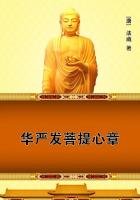``Sit up to the table, children; breakfast's ready.''
The speaker was a woman of middle age, not good looking, but nevertheless she looked good. She was dressed with extreme plainness, in a cheap calico; but though cheap, the dress was neat. The children she addressed were six in number, varying in age from fourteen to four. The oldest, Harry, the hero of the present story, was a broad-shouldered, sturdy boy, with a frank, open face, resolute, though good-natured.
``Father isn't here,'' said Fanny, the second child.
``He'll be in directly. He went to the store, and he may stop as he comes back to milk.''
The table was set in the center of the room, covered with a coarse tablecloth. The breakfast provided was hardly of a kind to tempt an epicure. There was a loaf of bread cut into slices, and a dish of boiled potatoes. There was no butter and no meat, for the family were very poor.
The children sat up to the table and began to eat. They were blessed with good appetites, and did not grumble at the scanty fare. They had not been accustomed to anything better.
They had scarcely commenced the meal when the father entered. Like his wife he was coarsely dressed. His wife looking up perceived that he looked troubled.
``What is the matter, Hiram?'' she asked. ``You look as if something had happened.''
``Nothing has happened yet,'' he answered; ``but I am afraid we are going to lose the cow.''
``Going to lose the cow!'' repeated Mrs. Walton, in dismay.
``She is sick. I don't know what's the matter with her.''
``Perhaps it is only a trifle. She may get over it during the day.''
``She may, but I'm afraid she won't.''
``What are you going to do?''
``I
have been to Elihu Perkins, and he's coming over to see what he can do for her.
He can save her if anybody can.''
The children listened, and, young as they were, the elder ones understood the calamity involved in the possible loss of the cow. They had but one, and that was relied upon to furnish milk for the family, and, besides, a small amount of butter and cheese, not for home consumption, but for sale at the store in exchange for necessary groceries. The Waltons were too poor to indulge in these luxuries.
After breakfast Elihu Perkins, the ``cow doctor,'' came. He was an old man with iron-gray hair, and always wore steel bowed spectacles.
``Well, neighbor Walton, so the cow's sick?'' he said.
``Yes, Elihu, she looks down in the mouth. I hope you can save her.''
``I kin tell better when I've seen the critter. When you've got through breakfast, we'll go out to the barn.''
``I've got through now,'' said Mr. Walton.
``May I
go, too, father?'' asked Harry, rising from the table.
``Yes, if you want to.''
The three went out to the small, weather-beaten building which served as a barn. It was small, but still large enough to contain all the crops which Mr. Walton could raise.
They opened the small barn door, which led to the part occupied by the cow's stall.
The cow was lying down, breathing with difficulty. Elihu Perkins looked at her sharply through his ``specs.''
``What do you think of her, neighbor Perkins?'' asked the owner, anxiously.
``I
think the critter's nigh her end,'' he said, at last.
``She looks like Farmer Henderson's that died a while ago: I couldn't save her.''
``Save my cow if you can. I don't know what I should do without her.''
``I'll do my best, but you mustn't blame me if I can't bring her round.''
``I
know you can save her if anyone can, Elihu,'' said Mr. Walton.
``Yes, I guess I know about as much about them critters as anybody,'' said the old man. ``Have you got any hot water in the house?''
``I'll go in and see.''
``I'll go, father,'' said Harry.
``Well, come right back. We have no time to lose.''
Harry reappeared with a pail of hot water.
``That's right, Harry,'' said his father. ``Now you'd better go into the house and do your chores, so as not to be late for school.''
Harry would have liked to remain and watch the steps which were being taken for the recovery of the cow; but he knew he had barely time to do the ``chores''
referred to before school, and he was far from wishing to be late there. He had an ardent thirst for learning, and, young as he was, ranked first in the district school which he attended. Since he was nine years of age, his schooling had been for the most part limited to eleven weeks in the year. So it happened that Harry, though a tolerably good scholar, was deficient in many respects, on account of the limited nature of his opportunities.
He set to work at once at the chores. First he went to the woodpile and sawed and split a quantity of wood.
After sawing and splitting what he thought to be sufficient, he carried it into the house by armfuls, and piled it up near the kitchen stove. He next drew several buckets of water from the well, for it was washing day, brought up some vegetables from the cellar to boil for dinner, and then got ready for school.















